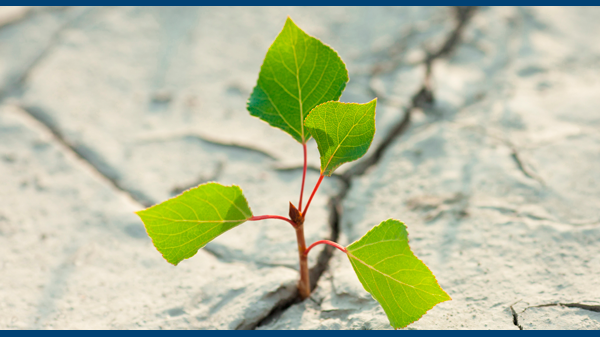Rabbi Joel Oseran | Beth Hillel Roma, Italy
 We read this Shabbat the double Parashot Vayak’heil-P’kudei which conclude the book of Leviticus. The rabbis are always quick to find meaning in repetitive use of word forms and so they find special meaning in the word Vayak’heil.
We read this Shabbat the double Parashot Vayak’heil-P’kudei which conclude the book of Leviticus. The rabbis are always quick to find meaning in repetitive use of word forms and so they find special meaning in the word Vayak’heil.
In our Torah reading for this week it means, “And Moses assembled (Vayak’heil) the entire Israelite community.” In last week’s Torah portion, the same word form is used when the Israelites gathered (Vayikaheil) againat Aaron to demand that he lead them in the making of the Golden Calf.
The rabbis teach us that what began with treachery and apostasy against God (the incident of the Golden Calf) ended with reconciliation and God’s forgiveness with instructions on how to build the Tabernacle. After despair comes hope – bith introduced by the same Hebrew word form (K-H-L).
This teaching is fundamentally important to us as we face long, difficult days in isolation, trying our best to remain healthy and avoid contact with COVID-19. For many of us, this is a period of great anxiety; weighing us down and sapping our spirits. Assuming the future will be as difficult as or even more difficult than the present is often a reaction to life’s challenges. We saw it with the Israelites and their uncontrolled fear at the thought that without Moses they were lost. It would only get worse in the future – there was panic – perspective was lost – hope was gone.
But this is not what Judaism teaches us my friends. The fundamental lesson we learn from our Jewish way of life is that without hope, without faith in a better tomorrow, fear and anxiety will totally distort our basic human goodness – our basic humanity.
The former Chief Rabbi of the UK, Jonathan Sacks, wrote about hope in an essay entitled, “Future Tense – How the Jews Invented Hope.” He wrote:
“Western civilization is the product of two cultures: ancient Greece and ancient Israel. The Greeks believed in fate: the future is determined by the past. Jews believed in freedom: there is no ‘evil decree’ that cannot be averted. The Greeks gave the world the concept of tragedy. Jews gave it the idea of hope. The whole of Judaism – though it would take a book to show it – is a set of laws and narratives designed to create in people, families, communities and a nation, habits that defeat despair. Judaism is the voice of hope in the conversation of mankind.”
When we read our Torah portions this week we are struck by the minute details given to the Israelites in construction of the Tabernacle and its furnishings. But even though Judaism often focuses on the details of ritual observance, we must always keep before us the details of ritual observance, we must always keep before us the larger worldview it promotes. Building the Tabernacle in the desert was an act of faith and hope for a people traumatized by slavery and a sense of abandonment. God’s presence would be forever embedded into the hearts of the people – “Vayakheil Moshe et kol adat B’nei Yisrael” And Moses assembled the whole Israeli community (Ex: 35:1).
The Tabernacle represented a new beginning for the people. In contrast to the Golden Calf, constructed out of fear and despair, the Tabernacle, also replete with gold, was built out of hope and faith in the future.
So, my dear friends, let us use our ‘at home time’, time which this current situation important upon us, to reflect upon the profound teachings of our Jewish way of life.
Let us be inspired by the teachings of our own namesake, Hillel the Elder, who insisted on lighting one additional candle each night of Chanuka as a sign of hope and optimism in the future.
Let us be inspired by the Prophets of Israel who taught us the universal message that we are all God’s children and, as one family of nations, can come together, at times of crisis, to see the image of God in each and every human being. If this pandemic has taught us anything it is that humanity is inextricably linked to one another. Never before have I felt so interconnected to others – whether they live in my city, my country, my region, or my world.
Let us be inspired by the history of our Jewish people who, time after time, have shown the world that darkness is followed by light, that each new day represents new possibilities – “Praised are you, Adonai, who in goodness, renews each day of creation” (Taken from the Shacharit morning service).
Let us be inspired by the courage and dedication of all those health professionals who, at risk of their own health and safety, are working tirelessly, around the clock, to heal the sick, care for the infirmed and find a vaccine for this deadly virus. There is no better example of tikkun olam than the work of so many selfless human beings.
Adonai, our God, we pray for strength to remember that the world we live in is good – vayehi tov. We pray for strength to remember that human beings, created in your likeness, are good. We pray for strength to remember that the voice of hope is the voice of the people Israel – heard first at Sinai but echoing still and forever.
Keyn Yehi Ratzon – so may it be God’s will.
Amen.
The views and opinions expressed in this article are those of the author(s) and do not necessarily reflect the official policy or position of the World Union for Progressive Judaism (WUPJ).
